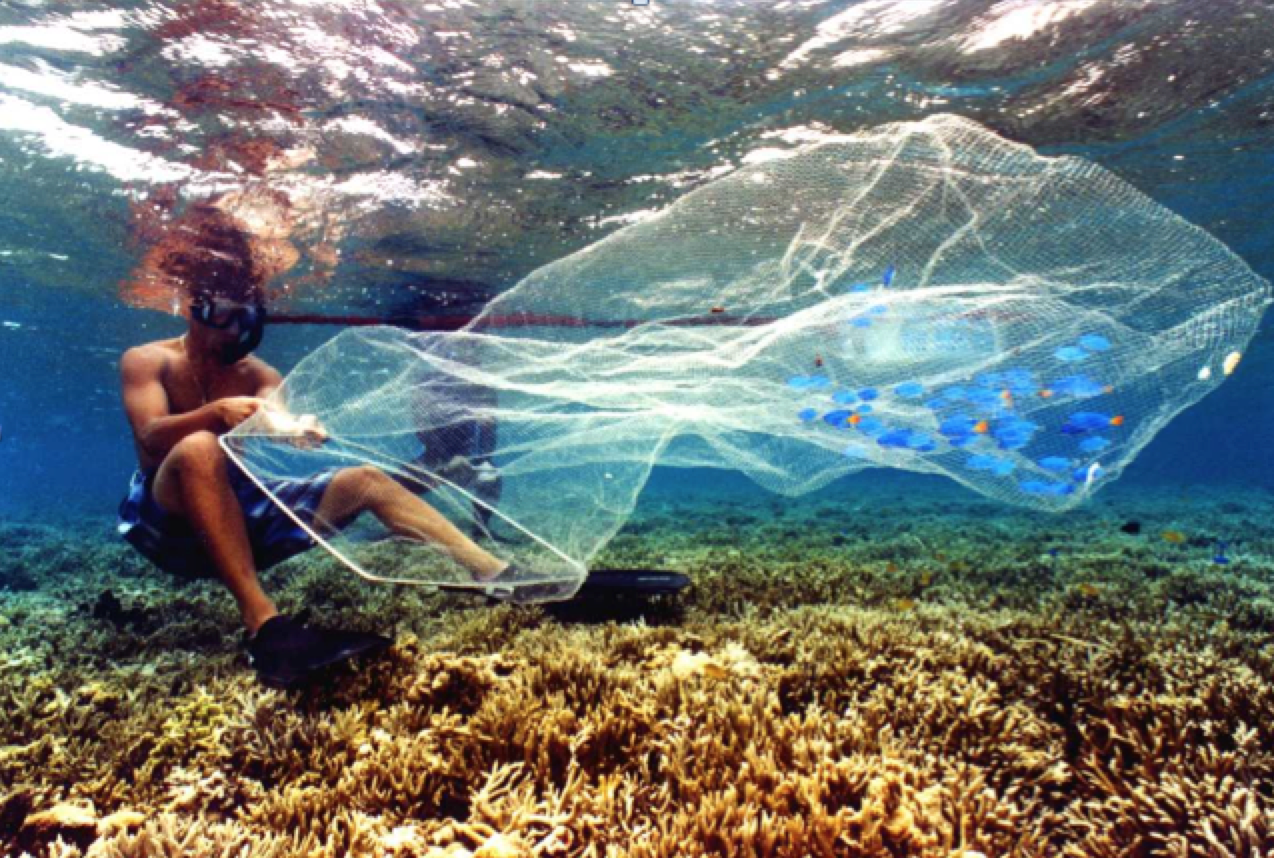Despite its recent success, the live aquarium fish trade faces a multitude of potential threats including incidences of reduced biodiversity from over-extraction, habitat destruction in some source countries, negative impacts of non-indigenous specie invasions, and a poor public image. Despite these threats, the aquarium trade is a unique and extremely significant positive force for both local fishing communities and for international conservation awareness.
The Marine Aquarium Industry
A thriving and dynamic international industry brings the wonders of marine reefs into the homes of millions of aquarium enthusiasts. The aquarium trade is supplied with wild-harvested animals as well as an ever-increasing diversity and quantity of captive-bred (aquacultured) species. All wild-caught animals are captured and transported under strict international permitting procedures, specifically corals which can only legally be shipped under CITES (the Convention on International Trade in Endangered Species of Wild Fauna and Flora) regulations and permits. Accordingly, strict quotas and permit requirements are enforced at every level of the supply chain. In contrast with most other fisheries, the exacting quality requirements of the trade demand perfect specimens which ensures extremely selective harvesting practices and a minimally invasive fishery.
Effective Approach

Benefits include, but are not limited to:

Saving threatened species from the brink of extinction through the development of captive breeding programs, catalyzing habitat preservation through sustainable supply-side practices, fostering research, and promoting education in coral reef conservation/preservation.

These sustainable practices include stewardship, mechanisms for sustainable livelihoods via poverty alleviation, and the protection of threatened ecosystems.

Finally, consumer education of aquarium trade sustainability can promote widespread public appreciation for the world’s aquatic ecosystems with the ultimate goal of minimizing negative impacts of this trade.

